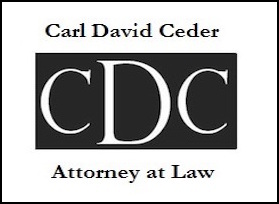A criminal charge of a DWI offense in Plano, Texas, or anywhere in the Dallas/Fort Worth metro area, can be costly as much as it is scary. Attorney Carl Ceder, however, is here to take the fear out of these types of crimes, especially since DWI crimes are the type of crime with which the most law-abiding citizens can be charged. They are almost never intentional crimes, and many times, the alleged DWI offender isn't in the wrong. That's because DWI tests fail to provide accurate results on a regular basis. But there's more to it than that.
Carl Ceder, an aggressive DWI defense attorney in Dallas/Fort Worth, wants you to know that you can defend against a DWI charge. Part of that defense may lay in the very thing that is supposed to help the prosecutor render a conviction: the DWI tests.
What Types of DWI Tests are There?
Driving while intoxicated offenses rely on tests to help prove the charge. The primary element of the offense is intoxication while operating the vehicle, and intoxication can occur under two situations:
- Your faculties are impaired; or
- Your breath (BrAC) or blood alcohol content (BAC) is .08% or higher.
To prove that your faculties are impaired or your BAC arises to illegal intoxication, DWI tests are administered. These tests include:
- Field sobriety tests (FST). These tests consist of standardized and non-standardized tests. Only standardized tests are admissible as evidence, and they include the one-leg stand, the horizontal gaze nystagmus, and the walk and turn test.
- Preliminary Breath Test (PBT). The PBT is a breath test that is taken on-site. The results can be used to support probable cause to arrest someone on a DWI charge, but they are not admissible as evidence in a court.
- Breathalyzer. This test is taken at the police department after the alleged offender has been arrested. In Texas, most police departments now use the Intoxylizer 9000.
- Blood Test. This blood is taken when an alleged offender has refused a breath test or is unconscious, making a breath test impossible. It is also used in cases when drugs are suspected.
- Urine Test. Urine tests are used primarily in cases when drugs are suspected.
How Are DWI Tests Challenged?
DWI tests are challenged in different ways, depending on the test being challenged. That said, the primary ways to challenge any of these tests include:
- considering how the test was administered because improper administration of the test can render inaccurate results;
- considering how the specimen was handled (e.g., blood or urine), because if there's a gap in the chain of custody or the sample was otherwise improperly handled, the results of the test could be inaccurate;
- considering the equipment, technology, or software used to conduct the test or analyze the specimen, because all equipment must be calibrated properly, maintained regularly, among other things, and failure to do so can render the equipment faulty, which means it can produce inaccurate results;
- considering when the test was taken because alcohol metabolization rates vary and have an impact on what the results of any chemical test will be.
There are other ways that DWI tests can be challenged and/or used to help your case.
Why Hire a Skilled DWI Defense Attorney in Plano, Texas Today?
It's important to keep in mind that effective use of DWI Tests as part of your defense requires a thorough understanding of the technology and science behind these tests. Only skilled and experienced DWI defense attorneys are able to effectively use this type of information as part of a viable and strong DWI defense.
If you want to fight your DWI, the best chance is hiring a smart, experienced DWI defense attorney. Contact Carl Ceder today to schedule a consultation.

